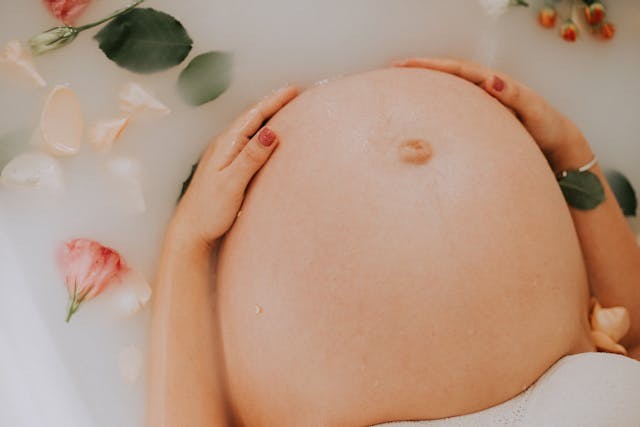
(Photo: Pexels/Lucas Mendes)
Several factors affect a woman's biological age. A recent study suggests that pregnancy is among those that accelerate a woman's biological aging.
Pregnancy Accelerates a Woman's Biological Age
A new study from Columbia University examined the link between a woman's reproductive history and aging. The study involved 1,735 young men and women between 20 and 22 from the Philippines as part of the Cebu Longitudinal Health and Nutrition Survey.
Biological aging, which refers to the progressive deterioration in the effectiveness and usefulness of our body's cells, piqued the interest of the experts. While there isn't yet a single gold standard for measuring this biological aging, keeping an eye on the molecular tags on our DNA surface is one approach that has shown promise. These tags sometimes called our epigenetic clocks, can be investigated to learn more about mortality risk, cellular age, and other aspects of our health.
According to Calen Ryan, an associate research scientist at the Columbia Aging Center, epigenetic clocks have transformed our understanding of biological aging throughout the life course and created new avenues for researching the timing and impact of long-term health consequences associated with reproduction and other life events.
Given this, the researchers estimated the subjects' approximate biological ages using a variety of epigenetic clock markers to see if this corresponded with the number of children they had. The number of times each woman had become pregnant was correlated with the presence of more age-associated DNA markers in childbearing women.
"Our findings suggest that pregnancy speeds up biological aging and that these effects are apparent in young, high-fertility women," Ryan said. "Our results are also the first to follow the same women through time, linking changes in each woman's pregnancy number to changes in her biological age."
The fact that the young men did not exhibit these increases in biological age suggests that pregnancy, not fertility or sexual activity, caused this biological aging. Ryan pointed out that the results draw attention to the possible long-term effects of pregnancy on women's health and the significance of caring for new parents, particularly young moms.
ALSO READ: Babies Born With Tails Need Greater Medical Attention; Case Is Not a Harmless Vestigial Trait
Pregnancy Hormones Change Women
The new study is not a complete show, as previous studies have shown how pregnancy changes women. Another study previously disclosed that pregnant women's hormones permanently alter them. When a woman is expecting a baby, her body is overflowed with pregnancy hormones, which cause physiological and behavioral changes to assist mothers-to-be in getting ready for their growing child. Some changes, like those in the breast, do not disappear even after birth.
The behavior of female pregnant mice was compared to that of non-pregnant mice. Scientists discovered a specific subset of nerve cells in the former's brain coordinating center, the hypothalamus, which had previously been linked to parenting style.
Additionally, women's brain structure reportedly changes during their menstrual cycle. Another study showed that the amounts of gray and white matter and cerebrospinal fluid varied along with hormone levels. Specifically, white matter changes in the patient's brains indicated faster information transfer shortly before ovulation, when the luteinizing hormone and 17-estradiol spike occur.
RELATED ARTICLE: Rate of Premature Babies Falls by 90% During Lockdowns Could Be Due to Reduced Stress and Declining Air Pollution
Check out more news and information on Babies and Pregnancy in Science Times.














